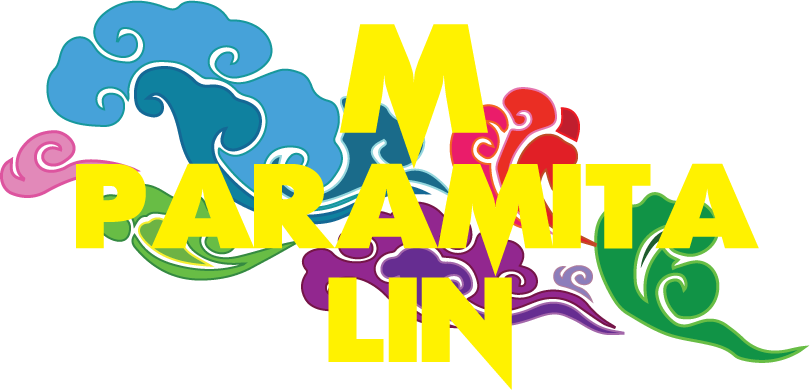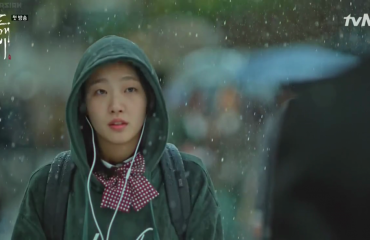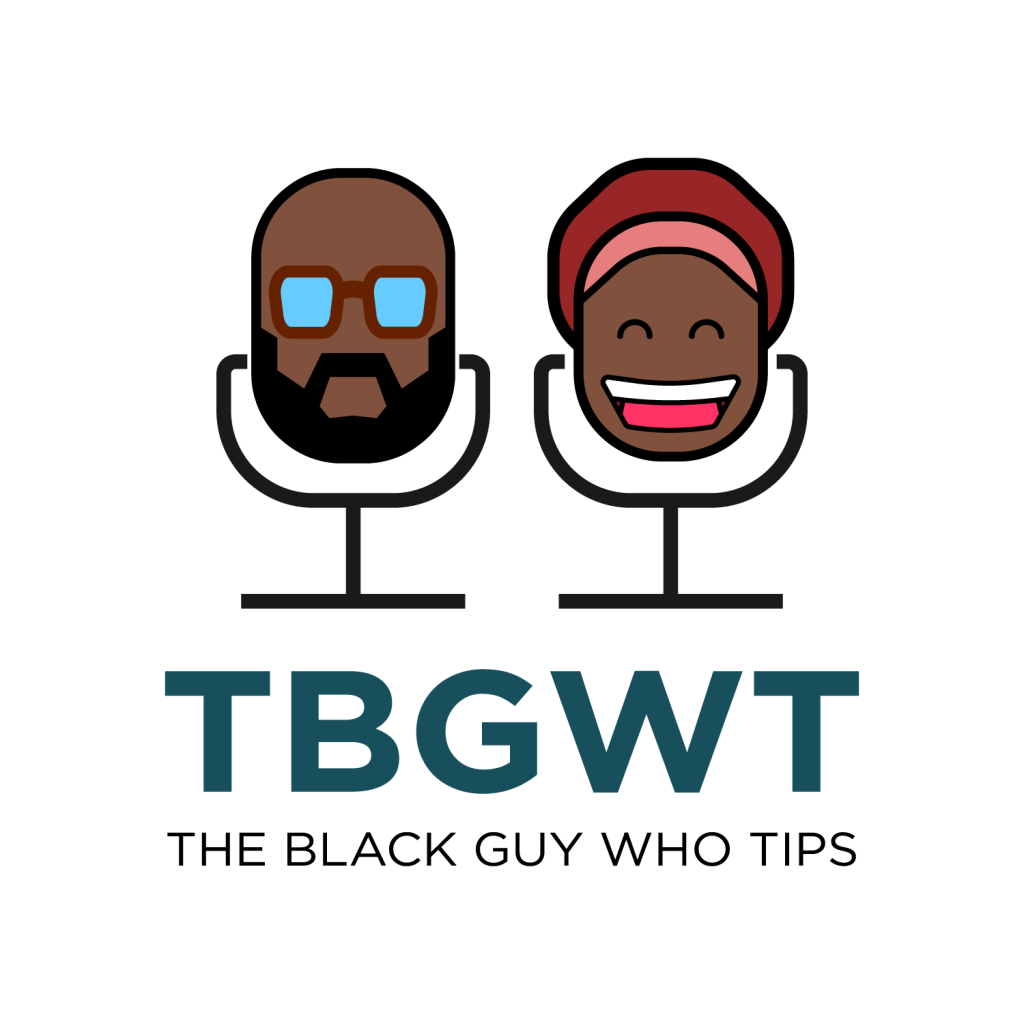
It’s an understatement to say that I’m a fan of the podcast The Black Guy Who Tips. I consider this podcast to be an essential part of daily life (I’d rather skip meals and toothbrushing than this podcast), and I credit Rod and Karen’s intelligence, humour, and especially kindness for helping to keep me sane while navigating the world of white supremacy. The duo’s regular podcasts mostly centre on current events and pop culture, with fantastic premium content for subscribers. For lurkers and members of now-defunct SOHH.com’s forums, especially The Ladies’ Room, you may remember Rod’s posts as Rodimus Prime, whose witty observations and hilarious comebacks regularly got him voted as one of the top five posters of all time.
We’re clearly not the only fans as The Black Guy Who Tips has been around for eight years, and they’re going to have their first live podcast event on September 20th in downtown Charlotte, North Carolina, with VIP tickets already sold out four months in advance. For anyone who’s in the US and can travel, there are still some regular tickets left, by the way.
Despite their busy schedules, Rod and Karen generously agreed to answer a few questions and share some knowledge about growing a business and keeping up high standards for content.
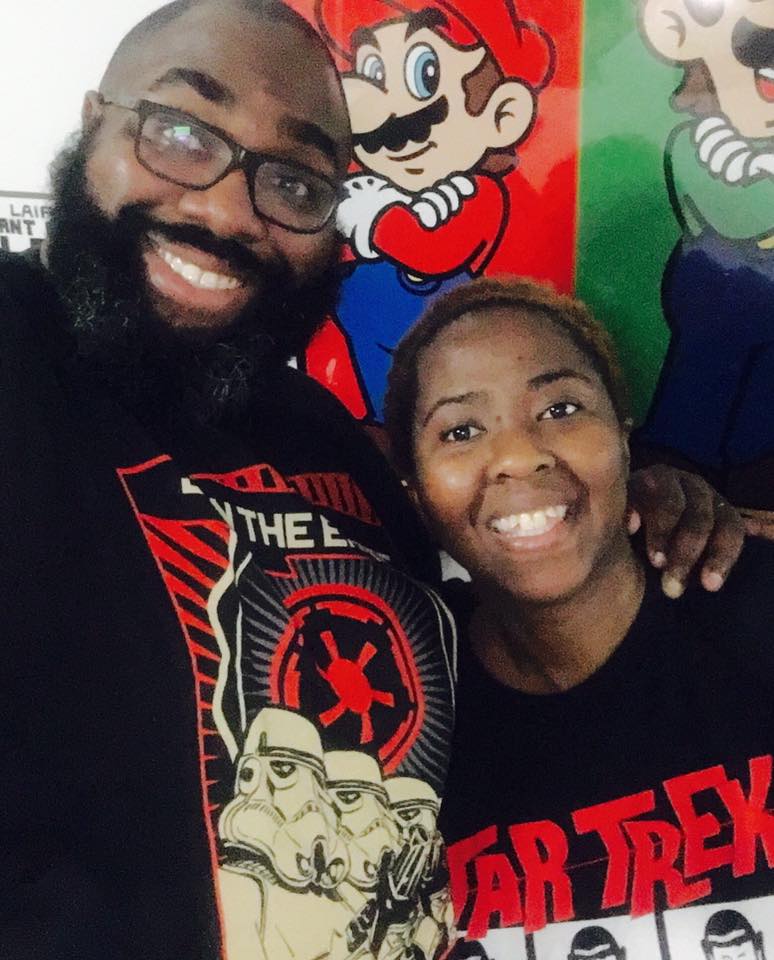
1. The Black Guy Who Tips has been going on for 8 years now, which is incredible. How difficult is it to keep this up? How do you not only maintain podcasting so many times a week but also keep the quality so consistent?
R: Well, I would say the first thing is…we make it a priority, we schedule things, we don’t have any kids…
K: Nope, no children!
R: So we organize our lives around that. Honestly, if you want to do something, you make the time for it, and you just have to be professional about it. The same way I’m sure writers write and people that do YouTube videos make time to do the YouTube videos, so you just have to be putting a priority about it. And as far as keeping the quality so consistent, I do a lot of work to make sure that the audio is good. I do a lot of work to make sure that the topics and stuff is good. I figure the more work I do, the less work it is for Karen and our guests, so they can come in and just be the personalities they are and add to the conversation and make it flow.
K: Agreed.
2. TBGWT is famous (and much-copied) for its segments, especially Guess the Race, Sword Ratchetness, and Fucking with Black People. What was the inspiration behind them and did they go through any evolution or did you have to do any tweaking? When other podcasters started copying you, did you feel you had to respond somehow by changing anything?
R: We’ll start with that [first] part of the question first. It’s very organic.
K: Yeah, it’s something natural. It’s something like, a lot of the little things we do, it just happens naturally.
R: Yeah, Karen came up with the songs.
K: I sure did!
R: We were just messing around like Karen would just start singing a song or something. We’re very organic. I think one of the things that makes podcasting cool is that there aren’t a lot of rules right now. You can do a lot of things on a whim. If they are cool moments, then they become part of the show and we just do it until we either feel like it’s not cool anymore or it’s not fun anymore or just the time passes and we move on to something new. That’s how the segments came up.
K: Yeah, just like Rod said, naturally and organic. For us, it’s just fun. For me, I do a little less work than [Rod], I just come to have fun and I kind of speak on behalf of the audience a lot of the time.
R: Honestly, Fucking With Black People came because we were covering, as black people in America, covering a lot of issues about race. If you know anything about race in America, it’s not always fun, and so it just started as a random comment, where I was just like, “It’s almost like people are just fucking with us like it’s a contest” and then boom, we ended up turning it into a game. As far as the other question, no. I mean, we originated the stuff we came up with. I always try to give credit to the inspirations and the places I hear things when we do the show. I’m pretty meticulous about it, I’m sure I’ve messed up over the years at some point but I try to always be like, this is where I heard this. But a lot of people don’t do that.
K: No, they don’t.
R: There’s a lot of people that hear something and their first thought is to take it, almost colonize it. But I never really worry about being copied because honestly, you could copy everything about our show, down to our names, and it wouldn’t be the same show without me and Karen.
K: No.
R: And most podcasters, content creators need to understand that the thing that you’re selling, the actual unique thing you have is yourself. Anything else can be copied. Anything under the sun. Music, names, segments. Anything can be copied but if you are being your authentic self, no one else can do or say the things on the fly like you do them. So I don’t worry about it. I think when it first started happening, I was worried about it, but that was about insecurity in myself, not about the people who were trying to steal or shark or copy us. And I realized that that impetus to go after them was all about ego and self and it’s not about the fact that we’re trying to make the best product possible.
3. Can you tell us about the decision behind podcasting full time? We read that Karen was a big part of this decision, and we’d especially like to know what her thoughts were.
K: I still have a 40-hour-week job, but it’s something that we had talked about for years. We had talked about it for years, but it was very hard to do it when both parties are working 40 hours a week. Most people that have full-time jobs know that when you come home, you’re exhausted, you’re tired, jobs take up a lot of your time and a lot of your energy. So most of your spare time, very few people want to do extra work or more work, additional work and for us, we increased it from one day a week to two days a week to three days a week, and I think that was a slow progression to us kind of preparing for it but it wasn’t until Roderick lost his job that I was like, Well, we actually have the time for it, like you actually have the time to dedicate to it full time. We just happen to be blessed where we have an audience base that was willing to support us financially so Roderick could do it full time.
R: Yeah, it was Karen that really encouraged me when I got laid off from work to do it full time. You know, with a lot of independent creative spaces, you really don’t know what your user base will support, you don’t know exactly how people will come through for you, and a lot of times you don’t have the opportunity to do the work, the groundwork, that will make it easy for people to support you. And this was a situation where I got laid off for the second time, and I was ready to just get on Monsterhunter or something and start looking for another job. And Karen said, look, we have worked very hard to put ourselves in a position where we built an audience, let’s lean on the audience to see if they will support us enough for us to be able to transition into being podcasters full time.
We’re still in the middle of that transition–for both of us–but I’m able to do it full time now and that’s definitely because Karen encouraged it. The goal is to continue to do what we’re doing until we’re both doing it full time. So yeah, that was all Karen ’cause I did not believe enough in just doing something that no one might value because you know, I’m a black person in America and I think black kids were told all the time, the limit is the sky, so we just don’t know what’s possible until you try it.
K: Right, and sometimes, I think that everybody needs that boost, that encouragement. Everybody actually needs that cheering section, and sometimes it just takes one person that actually believes your dream. And the thing is, you never know unless you try. If we would’ve tried it and not succeeded, I would have felt at peace with it. We gave it a try, and that’s all we can ask for–is just try. Versus if you don’t try, you don’t know what could’ve happened and your whole life would’ve been a “would’ve, could’ve, should’ve”.
R: Right. Karen’s a dreamer like that, and so she really was like, you can do this. She’s like, I don’t even know the technical know-how but you can figure it out and you will make it happen, and she was right.
K: That’s the thing. I believed, and still do believe in [Rod] and [his] capabilities and the things that [he] can do. I know I can do some things. There’s some things I just don’t have the ability or don’t have the time to actually sit and learn certain things.
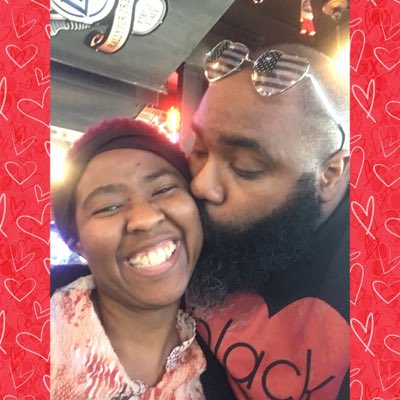
4. What’s the preparation process like before each podcast?
R: I collect articles. I normally come up with the segments. I spend a lot of time doing research so that when we do read the articles, I kinda know what I’m talking about ’cause Karen normally asks a lot of questions. So…that’s the preparation for me, and then I try to make it so that Karen can just walk in the room and do her thing.
K: Yeah, preparation for me…Roderick does the bulk of the prep of the show. I’m more of the talent even though I joke about that. Kind of like Puff Daddy, I just kinda like walk in and be like, I’m here. And a lot of times, my prep time is resting about 30 minutes after work and then we start the show.
5. What made you decide to take the plunge and do your live podcast in September? How are you preparing for it?
R: Well, we’ve done some live events in the last two or three years, starting with Revokecon, yeah, we did Revolt [Music] Con first and then Negrocon.
K: Awesomecon.
R: Oh! Okay, go ahead, Karen, you got it.
[Rod and Karen have a quick back-and-forth discussion about the various cons and people involved.]R: Anyway, we did it with some other black podcasters that we’ve known for a while. And we did a panel in DC for a nerd conference and we talked about, you know, a bunch of nerd stuff, had a good time. We found through that conference, through that panel, a lot of people came out to see us in DC, enough to really fill up that room. And, you know, afterwards, we stayed and took pictures with people for a long time ’cause so many people came specifically to see us. You know, when I introduced Karen, it was…everyone started cheering! I was like, wow, these people really came to see us. It wasn’t just like some people wandered into a room for the conference. They paid money for the day pass for just the opportunity to see us for an hour.
K: Right. Some of them didn’t go on the floor–for some of you who’ve been to conferences–they didn’t go on the floor, they didn’t travel, they didn’t sit there, they bought these tickets, showed up to this hour and some change and that’s it. I think for us it was our first time actually getting to actually see our friends, like actually physically see our friends and them showing up and showing us love. And that kind of started the spark.
R: Yeah, so we ended up doing that, then we ended up getting invited to Revolt Con, which was Puff Daddy’s annual event. We got to be on a panel with Combat Jack (rest in peace)–why am I always drawing a blank at this dude’s name–the man that went to jail…well, yeah, we got to meet some titans of the industry at the time. We had such a good time that we ended up being on TV from that.
K: Yeah, that was a fun experience.
R: Yeah, it was definitely a different experience. Not something that I thought a podcast would take us to.
K: Yeah, with makeup and everything!
R: I definitely could not have foreseen that as a person that was doing a podcast in the spare bedroom with my wife. I was never like, “One day…we’ll be on stage, we’ll be on TV.” Then we went to Seattle, we did a show last year in Seattle. We did a show in DC that was called NegroCon, which was the first podcast that we put on live with our friends Chris and Brandon and a bunch of other people. And we all did that together, and so we said, this time, we have enough momentum. We’re proven, we’ve met people, we went to Seattle and people came to see us. We’ve proven that wherever we go, we can get people to come see us.
K: Correct.
R: Let’s go ahead and try to do one in our hometown of Charlotte, so that was the–all those other experiences gave us the confidence to try it–and as far as preparing for it, we went and got an event planner, number one.
K: Worth every dime.
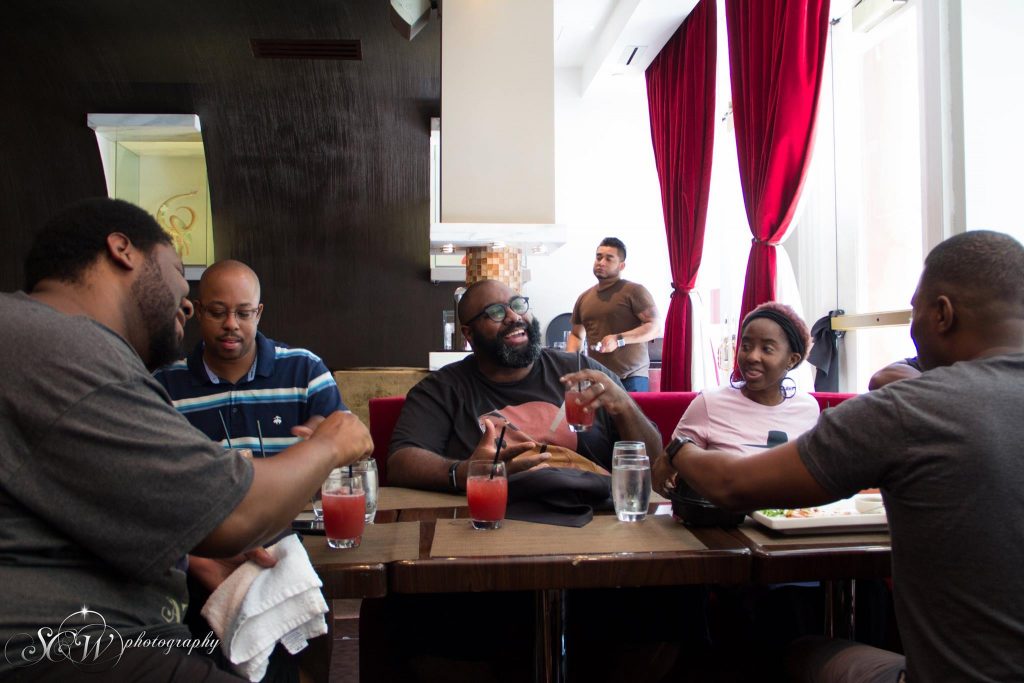 R: We figured out the math and the money, we went to visit venues. This is a lot of little stuff you have to do in order to put on an event. My main thing is I would suggest get an event planner and work backwards. Figure out what your budget is, figure out what you’re going to spend because the other part is we saved up money on our business account to make sure we had the money to invest in ourselves, which is the part of business that a lot of people don’t tell you. There would’ve been another scenario, we maybe would’ve had to put this on credit. I wouldn’t have felt comfortable putting my business, my credit into something that I didn’t know if I would make my money back on, so, you know, these are little stepping stones to get where we are.
R: We figured out the math and the money, we went to visit venues. This is a lot of little stuff you have to do in order to put on an event. My main thing is I would suggest get an event planner and work backwards. Figure out what your budget is, figure out what you’re going to spend because the other part is we saved up money on our business account to make sure we had the money to invest in ourselves, which is the part of business that a lot of people don’t tell you. There would’ve been another scenario, we maybe would’ve had to put this on credit. I wouldn’t have felt comfortable putting my business, my credit into something that I didn’t know if I would make my money back on, so, you know, these are little stepping stones to get where we are.
6. What should listeners and fans expect during the live podcast?
K: They should expect to laugh and have a good time. A lot of interactions, basically it’s the same show that we normally do for those people that actually view us on Crowdcast. You’re just going to get a more intimate form of that, with the singing and playing the games. We’ll have giveaways and things like that, and for people who have VIP, we’re doing something extra for them. We’re doing meet and greet and take pictures and things like that.
R: Yeah, and as far as…we’re going to play games, we’re going to give stuff away. I think people should just come out. We’re going to have a comedian, we’re going to have Chris Lamberth open for us. I think people should just be ready to have a good time, there’ll be drinks there, so, it should be just a fun live event that is the show, and I can’t wait!
Bonus question #1
What should your listeners be drinking when they listen to TBGWT?
R: I mean, depends on the day, honestly. If we’re doing a lot of White People News, I suggest wine.
K: Wine with cheese.
R: Wine and crackers and cheese.
K: Yesss!
R: But you know, we go with every drink. We go with…look, there’s people that’s gonna be working out, there’s people that’s gonna be drinking hard liquor, there’s gonna be people that need a beer, some Colt 45 action, I don’t know!
K: Come on!
R: Depends on what your day’s been like. We go good with everything.
Bonus question #2
We understand that you’re fans of Din Tai Fung—how would you rate the soup dumplings: Pork, Pork and Crab, Truffle and Pork? Which one is the must-try for beginners?
R: Augh! So good! I’m on the east coast of Charlotte, we don’t have nothing like it!
K: Right! I was so disappointed. I was looking around like, we’re gonna have to get back out there.
R: The closest we got out here is, we got this pho place where they got shrimp dumplings and some of the soup but it ain’t the same as that Din Tai Fung!
K: It ain’t the same, dawg!
R: Man, the one I like, it was like shrimp and crab or something like that.
K: Mmmm.
R: It was shrimp and something. I don’t remember exactly what it was, but anyway, we tried them all. They all good!
K: Oh, they all great.
R: They’re all great for beginners!
K: We just mixed it up, it was delicious, baby.
Listen to Rod and Karen’s interview below!
